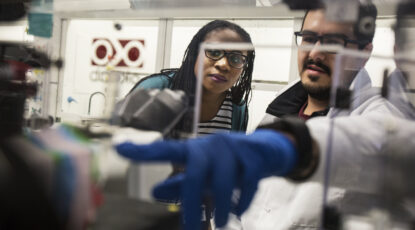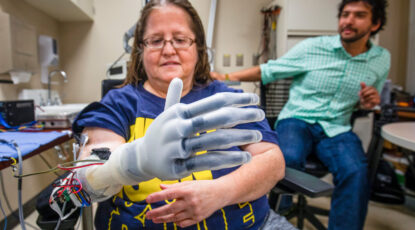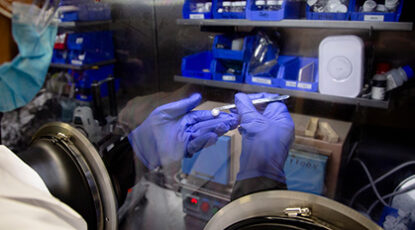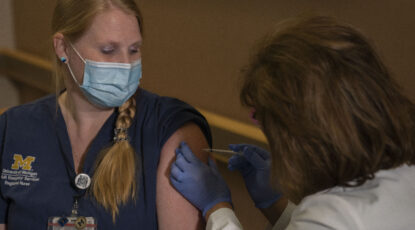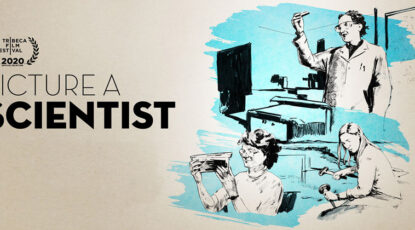Science and Technology
-
How to end discrimination in health research funding
White researchers are nearly twice as likely to be awarded a grant than Black scientists of similar academic achievement. Now, a group of biomedical engineering leaders is calling on NIH and other funding agencies to address the stark disparity.
-
How to make the robot revolution serve the people
The Ford Robotics Building, at $75 million and 140,000 square feet, is set to open soon. Features include an indoor fly zone for autonomous aerial vehicles, an outdoor playground for walking robots, a high-bay garage for self-driving cars, and more.
-
How do we manage the unchecked power of social media?
Professor of Information Cliff Lampe ponders the future of social media in the wake of several platforms’ decisions to ban Donald Trump after the Jan. 6 insurrection at the nation’s Capitol.
-
$9.95M for ‘smart intersections’ across Ann Arbor
Ann Arbor will soon be home to more than 20 “smart intersections”—capable of gathering and transmitting information in real time to connected cars—as part of a University of Michigan effort to demonstrate the safety potential of connected and automated vehicles.
-
How to manage your digital life
With so much of our lives online — photos, videos, financial records, creative projects — many of us have become de facto archivists. Staff at the U-M Library offer a primer to organize your digital universe.
-
‘Holy grail’ battery doubles the range of electric vehicles
Lithium metal batteries can double the capacity of today’s standard lithium-ion cells, and much of the existing manufacturing system is primed for production, say experts at U-M. Let’s roll!
-
Michigan Medicine vaccinates first employees for COVID-19
Michigan Medicine began vaccinating people against COVID-19 Dec. 14 with an initial group of five frontline workers.
-
‘More diversity equals better science’
The most resilient ecosystems are the most diverse, says botanist and documentarist Sharon Shattuck, BS ’05. Her film spotlights three women seeking to make ‘better science.’
-
U-M shifts to saliva-based surveillance testing for COVID-19
Changes include streamlined sign-up, more locations, 6K weekly capacity.

